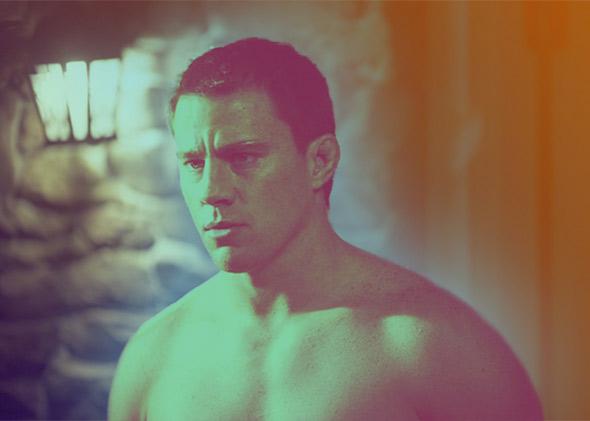The Movie Club is a weeklong conversation about the year in film. Read all the entries here.
Dear All,
After Stephanie’s John Wick–themed folk ballad (which I’m dearly hoping some musical Slate reader will set to an actual lyre accompaniment and send us the video to embed), I’m wondering if perhaps we should retire not only this year’s edition of Movie Club, but the entire feature. Who else in the Club’s eminent history has rhymed “wicked” with “kickèd,” or turned an ode to a Keanu Reeves action thriller into a piece of impassioned pit bull rescue advocacy?
I’ll resist the urge to stay up all night composing this post in anapestic tetrameter just for the fun of it (though I did once review Robert Zemeckis’ Beowulf in faux Old English verse). In fact, since we’re sadly down to our last round of conversation and there’s still a lot of ground to cover, I’m going to dispense with elegant transitions entirely—I’ll just throw out some titles in the form of a list. May you each pick a movie to serve as your grist.
— Whiplash. In talking about Damien Chazelle’s debut film, I should disclose that I was on the five-person jury that awarded it the best U.S. dramatic feature prize at Sundance. That doesn’t necessarily mean I’m an unreserved partisan, though—jury prizes require consensus, and of the films on our slate, this was the one we agreed, for all its flaws, had the most style and the finest sense of directorial control. Chazelle’s camera moves with such confidence, the story drives forward with such jagged energy, and Miles Teller and J.K. Simmons are so in tune as actors—how can you not enjoy the ride? Yes, the final concert scene is absurd: too long, dramatically incoherent, at times seeming to deliberately parody its own breakneck intensity. And I know many people were put off by the testosterone-driven, homophobic-language-filled tone of the story, in which women exist mainly as symbols of worldly distraction from the religion of jazz. Call me a sucker for movies about unhealthy pedagogical relationships (I’ll watch The Prime of Miss Jean Brodie or The Paper Chase all night long), but I thought Chazelle’s script was actually pretty astute about, and critical of, the sadomasochistic destructiveness of its central masculine dyad. At least until that last scene. Anyway, I can’t wait to see what Chazelle puts his hand to next.
— Into the Woods. Stephanie mentioned she craves more movie musicals but can’t abide Stephen Sondheim. As someone relatively unfamiliar with Sondheim’s work, it wasn’t until going back and watching the original Broadway production that I was able to see how beautiful a piece of musical theater the show actually is and how badly Rob Marshall’s glum, murky adaptation botched it, despite a remarkable lineup of fine performances, singing chops and all. Why have so many recent film musicals—Chicago, Marshall’s mysteriously Oscar-winning 2002 adaptation of the hit Broadway show, or Tom Hooper’s to me near-unwatchable Les Misérables in 2012—seemed to have no idea how to stage a production number, either sending the camera up Anne Hathaway’s moist nostrils or editing group dance sequences so choppily the dancers might as well not be in the same room? What is it that ever makes a filmed musical work, anyway?
— Foxcatcher. Here’s a movie that for a moment seemed like a big part of the conversation (you know which conversation I mean; it starts with O, and we’re supposed to be having it right now) and then all but disappeared from the scene. I gave it an admiring if reserved review at the time, but in retrospect I’m not sure if it’s a good movie or just a moody, well-acted and tastefully assembled facsimile of one. Do Steve Carell’s facial prostheses and extreme physical transformation enhance his performance as the cold-fish billionaire John du Pont, or get in the way? Criticism has been leveled at E. Max Frye and Dan Futterman’s script and Bennett Miller’s direction for suggesting that repressed homosexual longing was the prime motive for the film’s central act of violence, when all indications suggest that it was actually paranoid schizophrenia. (For what it’s worth, Mark Schultz himself recently vehemently disavowed, in ALL CAPS no less, the film’s portrait of his relationship with du Pont.) If Foxcatcher did twist the real story significantly for its own dramatic purposes, does it matter? (And does that mattering depend, to any extent, on what those purposes are?)
Amy, it’s your turn to don a blue-and-gold Foxcatcher singlet and wrestle with these and other dilemmas. I will say that Channing Tatum’s backflip from a standing position in that movie was one of the finest out-of-the-blue sight gags of the year (especially in the context of a film generally lacking for yuks). But it was only the third-best Channing Tatum moment of the year, trailing behind the frat-soul-mate encounter Amy cites from 22 Jump Street and, enshrined at No. 1, that hacked Sony email. (Like the man he played, Tatum embraces the power of ALL CAPS.) I truly hope Tatum never accepts a role as a superhero, because he’s perfectly cast as the one he already is.
Fondly,
Dana
